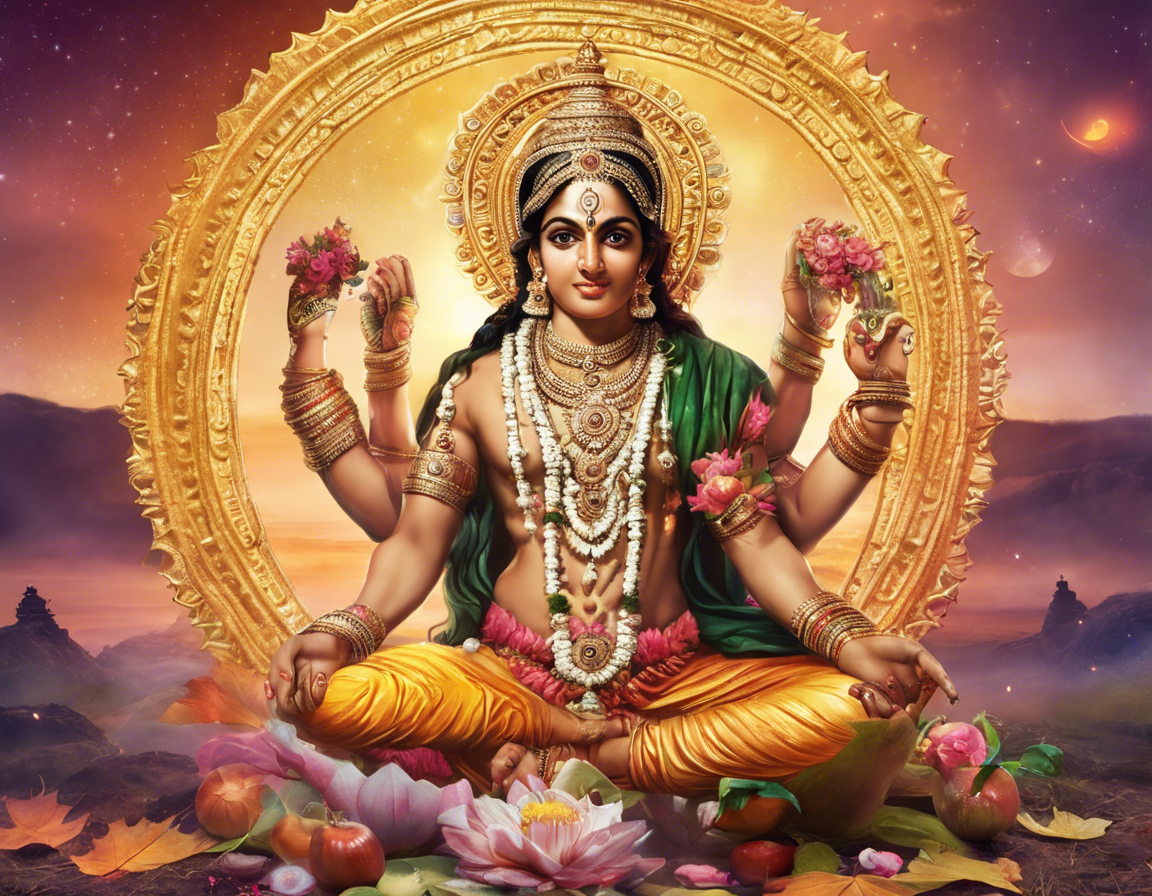Introduction
In the Hindu lunar calendar, Ekadasi is considered a sacred day that occurs twice a month, specifically on the 11th day of each lunar fortnight – once during the waxing phase (Shukla Paksha) and once during the waning phase (Krishna Paksha). It is considered an auspicious day for fasting, prayer, and spiritual practices to seek the blessings of Lord Vishnu. In September 2023, Ekadasi falls on two significant dates – September 6th and September 21st. Observing Ekadasi on these days is believed to bring spiritual benefits and purification to the mind and body.
Significance of Ekadasi
Ekadasi holds great significance in Hindu culture and traditions. It is believed that observing Ekadasi vrata (fast) can help in acquiring spiritual upliftment, purifying one’s consciousness, and seeking forgiveness for past sins. The word “Ekadasi” is derived from Sanskrit, where “eka” means ‘one’ and “dasi” means ‘ten’, symbolizing the 11th lunar day. It is considered highly auspicious to fast from grains and beans on Ekadasi, consuming only fruits, vegetables, nuts, and dairy products for the day.
How to Observe Ekadasi
1. Complete Fast: Many devotees choose to observe a complete fast on Ekadasi, abstaining from food and water for the entire day and breaking the fast the next morning after sunrise.
-
Partial Fast: Some individuals opt for a partial fast, where they refrain from consuming grains and beans but may have fruits, vegetables, milk, and nuts during the day.
-
Prayers and Meditation: It is customary to engage in prayers, chant mantras, read sacred texts, and meditate on the significance of Ekadasi to enhance the spiritual benefits of the day.
Foods to Avoid and Consume on Ekadasi
– Foods to Avoid: Grains such as rice, wheat, lentils, beans, and certain spices are typically avoided on Ekadasi. Non-vegetarian foods and intoxicants are also prohibited.
- Foods to Consume: Fruits, vegetables, dairy products, nuts, rock salt, and specific grains like quinoa, sama rice, and water chestnut flour are considered ideal for Ekadasi consumption.
Benefits of Observing Ekadasi
1. Spiritual Growth: Observing Ekadasi is believed to enhance spiritual growth, promote self-discipline, and strengthen one’s devotion to the divine.
-
Detoxification: Fasting on Ekadasi is thought to detoxify the body and mind, cleansing impurities and promoting overall well-being.
-
Karmic Cleansing: It is said that observing Ekadasi can help in the atonement of past karma and bring blessings for a harmonious life.
Tips for Observing Ekadasi
1. Plan Ahead: Prepare for Ekadasi by arranging for fasting-friendly foods and ingredients well in advance to avoid any last-minute hassles.
-
Stay Hydrated: While fasting, it is crucial to stay hydrated by drinking water, coconut water, or herbal teas to maintain energy levels and prevent dehydration.
-
Sattvic Eating: Consume sattvic (pure) foods on Ekadasi, focusing on simplicity, purity, and lightness in your meals.
FAQs about Observing Ekadasi
-
Can I drink water while fasting on Ekadasi?
Yes, it is generally allowed to drink water while fasting on Ekadasi to stay hydrated. -
Is it necessary to fast completely on Ekadasi?
No, you can choose to observe a partial fast by avoiding grains and beans while consuming fruits, vegetables, and dairy products. -
Can children and the elderly observe Ekadasi fast?
Fasting on Ekadasi is a personal choice. Children, elderly, and individuals with health conditions may choose to participate in the fast according to their capabilities. -
What time does Ekadasi fasting begin and end?
Ekadasi fasting typically begins at sunrise on the Ekadasi day and concludes after sunrise the following day. -
Can I eat a meal after sunset on Ekadasi?
It is preferable to avoid eating after sunset on Ekadasi, as the main meal is traditionally consumed before sunset. -
Can I break the fast with a feast on Dwadasi (the day after Ekadasi)?
It is recommended to break the fast on Dwadasi with a simple and sattvic meal rather than indulging in a lavish feast. -
Is there any specific mantra or prayer to chant on Ekadasi?
Devotees often chant Vishnu Sahasranama, the Hare Krishna Maha Mantra, or other prayers dedicated to Lord Vishnu on Ekadasi for spiritual upliftment. -
Can non-Hindus observe Ekadasi?
Ekadasi is a spiritual practice open to people of all faiths who wish to participate in the sacred observance and benefit from its spiritual significance. -
Are there any specific rituals to perform on Ekadasi?
While fasting and prayers are the primary observances, individuals may also visit temples, read sacred texts, and engage in acts of charity and service on Ekadasi. -
What should I do if I unintentionally consume grains on Ekadasi?
If grains are consumed inadvertently on Ekadasi, seek forgiveness, and continue the fast mindfully, focusing on spiritual intentions and resolve.
Conclusion
Observing Ekadasi in September 2023 provides a valuable opportunity for spiritual growth, self-discipline, and seeking divine blessings. By following the prescribed guidelines, maintaining a sattvic diet, and engaging in prayers and meditation, devotees can experience the transformative power of this sacred day. Embrace the essence of Ekadasi to purify your mind, body, and soul, and deepen your connection with the divine.
